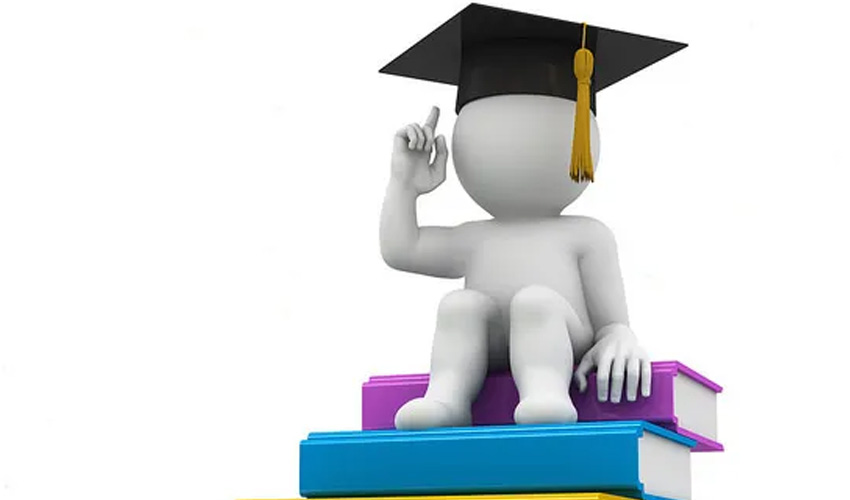In the realm of education, the pursuit of knowledge is intertwined with the ethical responsibilities of educators. However, the concept of moderation, often seen as the middle ground between extremes, can sometimes clash with ethical considerations.
This write-up cut into the complex interplay between ethics, moderation, and sustainable development in education, aiming to provide a comprehensive understanding from all angles.
Defining ethics in education
Ethics in education encompasses principles of fairness, integrity, respect, and responsibility. Educators are entrusted with the task of imparting knowledge while upholding moral standards and fostering a conducive learning environment. This involves respecting diverse perspectives, safeguarding students' well-being, and promoting academic honesty.
Ensuring fairness in education begins with creating inclusive classrooms where every student feels valued and respected. Educators must be mindful of implicit biases and take proactive steps to address them. This includes incorporating diverse perspectives into the curriculum, using inclusive language, and actively promoting cultural sensitivity.
Integrity in education extends beyond academic honesty to encompass broader ethical considerations such as transparency, accountability, and respect for intellectual property. Educators must model ethical behavior and uphold high standards of integrity in their interactions with students, colleagues, and the community
Role of moderation
Moderation in education refers to striking a balance between various elements such as curriculum rigor, assessment methods, and disciplinary measures. It seeks to avoid both excessive leniency and undue strictness, aiming for equitable treatment and optimal learning outcomes for all students.
Curriculum moderation involves ensuring that instructional materials and activities are appropriate, relevant, and aligned with learning objectives. This requires regular review and adaptation of curriculum content to meet the evolving needs of students and reflect advances in knowledge and pedagogy.
Assessment moderation encompasses strategies to ensure the validity, reliability, and fairness of assessment instruments and practices. Educators must use a variety of assessment methods to accurately measure student learning and provide timely, constructive feedback to support growth and development.
Disciplinary moderation involves establishing clear expectations for behavior and enforcing consequences consistently and fairly. Educators should adopt restorative approaches to discipline that focus on repairing harm and promoting positive behavior rather than punitive measures.
Ethical dilemmas in moderation
Despite its noble intentions, moderation can sometimes pose ethical dilemmas. For instance, when should educators intervene to maintain discipline without infringing upon students' autonomy? How can grading practices be fair and transparent while accommodating individual differences? These questions highlight the nuanced ethical considerations inherent in moderation.
One common ethical dilemma in education is the tension between academic rigor and student well-being. While challenging students academically is important for promoting growth and achievement, educators must be mindful of the potential negative consequences of excessive stress and pressure on students' mental health and well-being.
Another ethical dilemma arises in the context of assessment and grading practices. Educators must balance the need for objective evaluation with recognition of students' individual strengths, challenges, and circumstances. This requires flexibility and discretion in grading policies to accommodate diverse learning styles and mitigate the impact of external factors on student performance.
Equity and access
An overarching ethical concern in education is ensuring equity and access for all students, regardless of their backgrounds or abilities. Moderation plays a crucial role in this aspect by mitigating disparities and providing support mechanisms for marginalized or disadvantaged learners. However, achieving true equity requires constant vigilance and proactive measures to address systemic barriers.
Educators must actively work to identify and remove barriers to learning, such as socioeconomic inequality, racial discrimination, and inadequate resources. This may involve implementing targeted interventions and support services to address the unique needs of underserved student populations and promote educational equity.
Inclusive practices such as differentiated instruction, Universal Design for Learning (UDL), and culturally responsive teaching can help create more accessible and equitable learning environments. By embracing diversity and honoring students' unique identities and experiences, educators can foster a sense of belonging and promote academic success for all learners.
Integrity in assessment:
Assessment practices lie at the heart of education, serving as a means to evaluate students' progress and proficiency. Maintaining integrity in assessment involves upholding standards of fairness, validity, and reliability. Educators must navigate the ethical terrain of preventing cheating, plagiarism, or other forms of academic dishonesty while promoting a culture of academic integrity.
To ensure the integrity of assessments, educators should employ a variety of strategies such as clear instructions, authentic tasks, and appropriate supervision. They should also educate students about the importance of academic honesty and the consequences of cheating or plagiarism.
Technology can be both a boon and a challenge to assessment integrity. While digital tools offer new possibilities for assessment design and administration, they also present opportunities for academic misconduct such as unauthorized collaboration or online cheating. Educators must stay vigilant and adapt their assessment practices accordingly to maintain the integrity of the evaluation process.
Ethical Leadership: Educational leaders, including administrators and policymakers, bear the responsibility of setting ethical standards and fostering a culture of ethical conduct within educational institutions. This entails promoting transparency, accountability, and ethical decision-making at all levels. Moreover, ethical leadership extends beyond the confines of the school walls, encompassing broader societal implications and ethical dilemmas in education policy.
Ethical leaders lead by example, demonstrating integrity, fairness, and compassion in their interactions with stakeholders. They prioritize ethical considerations in decision-making processes and engage in open dialogue with colleagues, students, parents, and community members to address ethical concerns and build consensus around shared values and goals.
Balancing conflicting values
In the complex landscape of education, educators often encounter situations where ethical considerations conflict with other values or priorities. For instance, the pressure to meet academic targets may clash with the principles of student well-being or inclusivity. Navigating these tensions requires a nuanced approach that acknowledges the interplay of competing interests while prioritizing ethical imperatives.
Educators must engage in reflective practice and ethical reasoning to navigate conflicting values and make informed decisions that align with their ethical commitments. This may involve seeking input from colleagues, consulting ethical guidelines and professional standards, and considering the potential consequences of different courses of action on stakeholders.
Cultivating ethical awareness
Ultimately, fostering ethical awareness among educators and students is paramount in navigating the intricacies of moderation in education. This involves promoting critical reflection, empathy, and ethical reasoning skills to navigate ethical dilemmas responsibly. By cultivating a culture of ethical awareness, educational institutions can uphold integrity, promote social justice, and nurture ethical leaders of tomorrow.
Educators can integrate ethics education into the curriculum through interdisciplinary approaches that explore ethical issues relevant to students' lives and future careers. They can also create opportunities for dialogue and reflection on ethical dilemmas in educational settings, encouraging students to consider diverse perspectives and develop their moral reasoning abilities.
Integrating sustainable development
In the context of education for sustainable development, ethics and moderation take on added significance. Educators have a moral obligation to prepare students to address pressing global challenges such as climate change, resource depletion, and social inequality. This requires integrating principles of sustainability into all aspects of education, from curriculum design to instructional practices.
Moderation in education for sustainable development involves balancing the need for environmental stewardship, social equity, and economic prosperity. Educators must cultivate a deep understanding of sustainability concepts and empower students to become agents of positive change in their communities and beyond.
Ethical dilemmas in education for sustainable development may include tensions between short-term economic interests and long-term ecological sustainability, as well as conflicts between individual freedoms and collective well-being. Educators must navigate these complexities with wisdom and foresight, considering the potential impacts



























